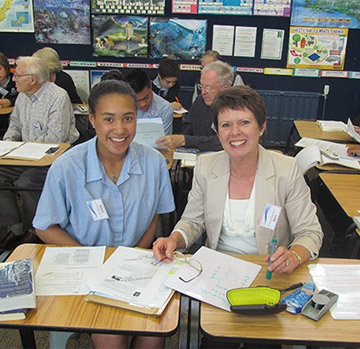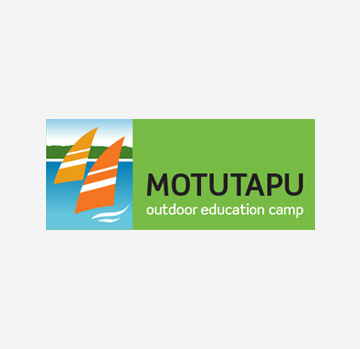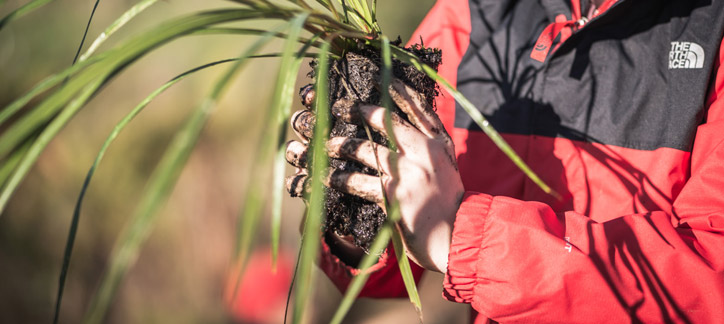Some of those who have benefitted from the trusts
Over the past 5 years

One Tree Hill College; Reading for enrichment Program
The Rotary Enrichment Programme (REP) at One Tree Hill College was developed from a reading support initiative set up by past principal Anne Dunphy and businessman Harvey Alison, representing the Penrose Rotary Club.
Seventeen years on and two very supportive principals later, REP is a well-established reading support programme that is strongly integrated into the teaching and learning programmes of One Tree Hill College and its whole school community. This program is being extended to other schools, including Otahuhu College and others.
Diabetes NZ Auckland Branch
The Trusts provide assistance in funding the summer campheld at the Sir Peter Blake Marine Education and Recreation Centre in Long Bay for children with diabetes aged between 9 and 12 years old. The camp, will host 48 children, supervised by the staff from the Starship Children’s Hospital. Many of the children who have never been away from home beforewill enjoy the challenges offered by the variety of land and water based activities available and the opportunity to make new friends with others in similar circumstances. Typically these children are the only ones in their school with diabetes and the feelings of social isolation and depression are common. The camp brings them together for peer support and mentoring. Being with other children who also have to do glucose finger prick tests several times a day and have regular injections can be incredibly empowering for them and can help to make them feel ‘normal’. The activities at the camp will also teach them how they can manage their condition while living a full and active life.


MotutapuOutdoor Education Camp
Motutapu Outdoor Education Camp is located in its own private valley on the coast of Motutapu Island. Visitors to the camp not only have access to the facilities within the 4 hectares of the camp property, but also have the luxury of being able to explore more than 3800 hectares of DoC managed scenic reserve over both Rangitoto and Motutapu Islands. Both islands are covered in native flora and fauna and dotted with archaeological, geographical, and environmental marvels. This is a sort after camp facility for a wide range of Primary and Intermediate schools
Riding for the Disabled
Over 80 per cent of our riders are children and teenagers. 37 per cent have a physical or intellectual disability while just over a quarter are on the autistic spectrum. Many of our riders live with more than one disability. Riding is of benefit to children and adults with a wide range of special needs, including but not limited to: Autistic Spectrum Disorders, Cerebral Palsy, Cystic Fibrosis, CVA (stroke), Down Syndrome, Intellectual Disability, Learning Disability, Hearing and Visual Impairments, Multiple Sclerosis, Muscular Dystrophy, Spina Bifida and Spinal Cord Injury (Para/Quadriplegia).


The Salvation Army
The Salvation Army has beenin New Zealand helpingthousands of families and individuals in need for many years—providing budgeting advice, food and clothing assistance, life skills programmes and other comfort and support. The Salvation Army are committed to their mission of caring for people, reforming society and transforming lives around the world since 1865.
The Army has over 3000 officers and employees drawn from all sections of the community in New Zealand, Fiji, Tonga and Samoa and is recognised as a high value employer. The Salvation Army is a registered charity under the Charities Act 2005, registered number CC37312. This means The Salvation Army is exempt from income tax. The Army also has Donee Status from IRD, meaning donations of $5 or more may qualify for a tax credit.
Trees for Survival
Trees for Survival is a charitable trust running an environmental education programme for schools across New Zealand. We teach students environmental stewardship by growing and planting native trees and offering students a hands-on approach to environmental conservation and restoration. Our focus is on protecting water quality, reducing erosion and creating wetland habitat, while alsoencouraging children to have an environmental understanding and inviting communities to work together. The Trees for Survival programme creates community partnerships by engaging schools, their local communities, businesses and councils all working together to restore our natural heritage.





